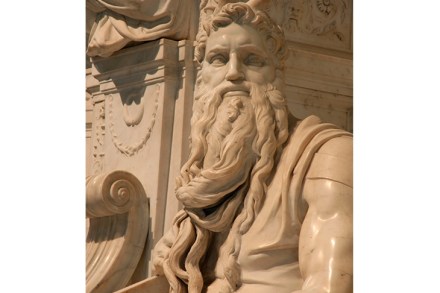Rewriting holy writ
Jesuits, the leading apologists for Rome and Catholic revival in Elizabethan England, cast a long shadow over the paranoid post-Armada years. For one thing, they set much store by Romish ‘persuasion’ (sophistical reasoning) and were often superb linguists. Among the languages codified by Jesuits were Guaraní in Paraguay and Sri Lankan Tamil. Jesuit attempts to translate the Bible into local vernaculars were often less successful, however. Japanese converts to Jesuitism apparently still believe that Noah survived the flood in a canoe; scribal error had corrupted the Ark into an unlikely means of salvation. Inevitably, translation is a frayed and ragged version of the original (Traduttore traditore, the Italians say: ‘The





















